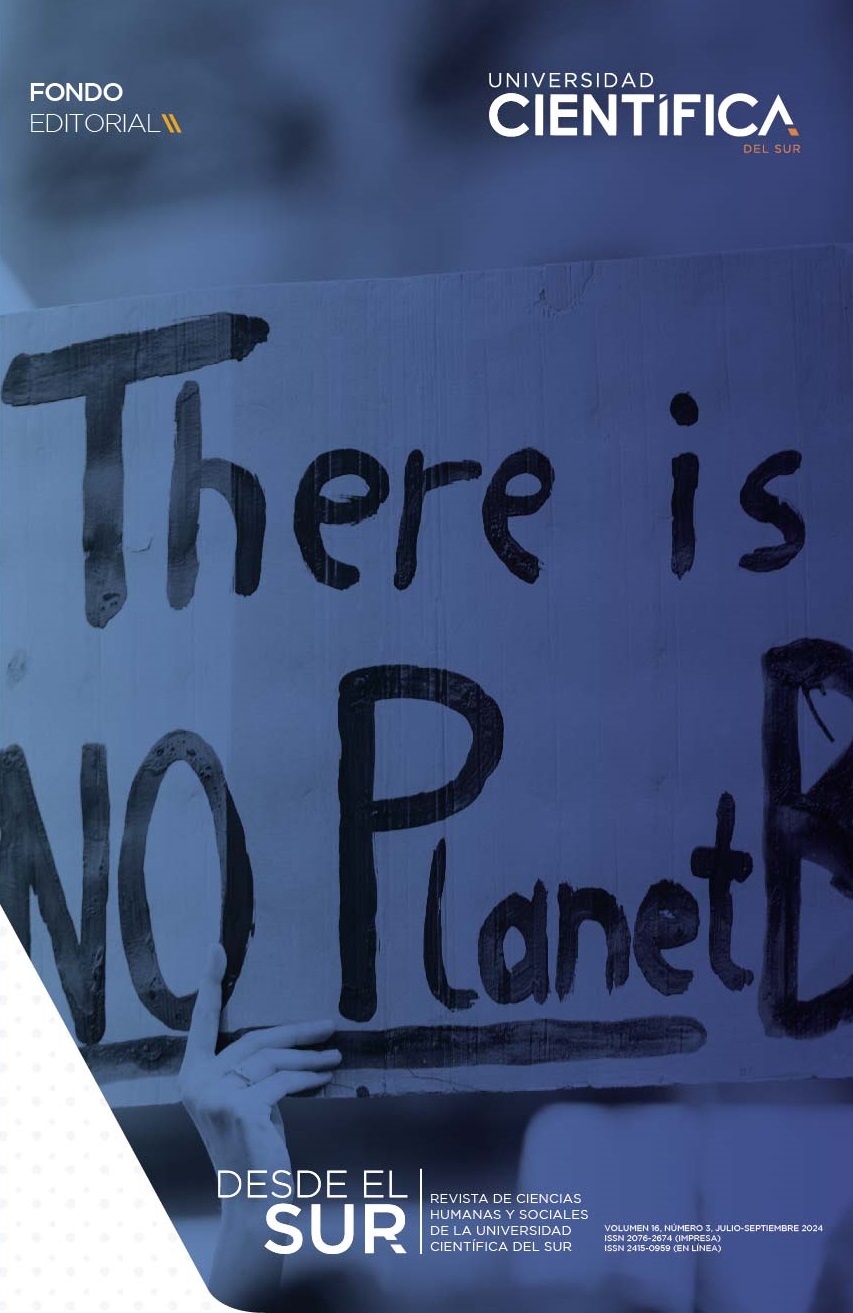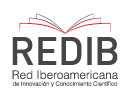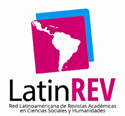Challenges of water governance in Latin America
a biopolitical perspective
DOI:
https://doi.org/10.21142/DES-1603-2024-0053Keywords:
Water governance, Latin America, biopolitics, neoliberal policies, sustainable developmentAbstract
Despite the abundant water resources in Latin America, severe disparities in distribution and access persist, necessitating a comprehensive examination of water governance practices. This paper aims to critically analyze the challenges and complexities of water governance in Latin America through a biopolitical perspective. The analysis reveals that water governance is profoundly influenced by historical inequalities, neoliberal policies, and sociopolitical power structures. The study concludes that effective water governance requires a holistic and integrated approach that addresses the biopolitical dimensions of resource management. This necessitates centralized coordination, enhanced subnational capacities, and prioritization of vulnerable populations to achieve sustainable and equitable water governance.
Downloads
References
Acevedo, T. (2020). Politics of water flows: Water supply, sanitation, and drainage. En Oxford Research Encyclopedia of Environmental Science. https://doi.org/10.1093/acrefore/9780199389414.013.649
Adams, E. A., Stoler, J. y Adams, Y. (2020). Water insecurity and urban poverty in the Global South: Implications for health and human biology. American Journal of Human Biology, 32(1), e23368. https://doi.org/10.1002/ajhb.23368
Almazán-Casali, S. (2022). Investigating the complex nature of power in water governance: A framework for incorporating typologies of power into the study of socio-hydrological systems. [Tesis de doctorado, University of Michigan]. https://doi.org/10.7302/4757
Babidge, S. (2021). Water ownership and governance. En Oxford Research Encyclopedia of Anthropology. https://doi.org/10.1093/acrefore/9780190854584.013.471
Berrabhia, M. (2023). Hydropolitical and biopolitical dynamics in Maghrebs Water Governance: Examining the international community’s role and initiatives in enhancing water security in Morocco. A Case Study. [Tesis de maestría, University of Ottawa]. https://ruor.uottawa.ca/server/api/core/bitstreams/6d5100dc-d539-477f-a1d1-67694c461fb5/content
Bezerra, M. O., Vollmer, D., Acero, N., Marques, M. C., Restrepo, D., Mendoza, E., Coutinho, B., Encomenderos, I., Zuluaga, L., Rodríguez, O., Shaad, K., Hauck, S., González, R., Hernandéz, F., Montelongo, R., Torres, E. y Serrano, L. (2022). Operationalizing integrated water resource management in Latin America: Insights from application of the freshwater health index. Environmental Management, 69(4), 815-834. https://doi.org/10.1007/s00267-021-01446-1
Blum, L. (2022). Neoliberalism and Education. En Handbook of Philosophy of Education. Routledge.
Boelens, R., de Mesquita, M. B., Gaybor, A. y Pena, F. (2011). Threats to a sustainable future: Water accumulation and conflict in Latin America. Sustainable Development Law & Policy, 12, 41. https://heinonline.org/HOL/Page?handle=hein.journals/sdlp12&id=41&div=&collection=
Boelens, R., Escobar, A., Bakker, K., Hommes, L., Swyngedouw, E., Hogenboom, B., Huijbens, E. H., Jackson, S., Vos, J., Harris, L. M., Joy, K. J., de Castro, F., Duarte-Abadía, B., Tubino de Souza, D., Lotz-Sisitka, H., Hernández-Mora, N., Martínez-Alier, J., Roca-Servat, D., Perreault, T., ... Wantzen, K. M. (2023). Riverhood: Political ecologies of socionature commoning and translocal struggles for water justice. The Journal of Peasant Studies, 50(3), 1125-1156. https://doi.org/10.1080/03066150.2022.2120810
Breuer, A. y Oswald Spring, U. (2020). The 2030 Agenda as Agenda Setting Event for water governance? Evidence from the Cuautla River Basin in Morelos and Mexico. Water, 12(2), Article 2. https://doi.org/10.3390/w12020314
Cardoso, J. V. y Pacheco-Pizarro, M. R. (2022). Water rights, indigenous legal mobilization and the hybridization of legal pluralism in Southern Chile. Legal Pluralism and Critical Social Analysis, 54(1), 117-146. https://doi.org/10.1080/07329113.2021.1951483
Correa-Parra, J., Vergara-Perucich, J. F. y Aguirre-Nuñez, C. (2020). Water privatization and inequality: Gini coefficient for water resources in Chile. Water, 12(12), Article 12. https://doi.org/10.3390/w12123369
Correia, J. E. (2022). Between flood and drought: Environmental racism, settler waterscapes, and indigenous water justice in South America’s Chaco. Annals of the American Association of Geographers, 112(7), 1890-1910. https://doi.org/10.1080/24694452.2022.2040351
Damonte, G. y Boelens, R. (2020). Hydrosocial territories, agro-export and water scarcity: Capitalist territorial transformations and water governance in Peru’s coastal valleys. En Rural-urban water struggles. Routledge.
Daoudy, M. (2020). Water weaponization in the Syrian conflict: Strategies of domination and cooperation. International Affairs, 96(5), 1347-1366. https://doi.org/10.1093/ia/iiaa131
de Soto, H. (2000). The mystery of capital. Why capitalism triumphs in the West and fails everywhere else. Basic Civitas Books.
Debaere, P. y Kapral, A. (2021). The potential of the private sector in combating water scarcity: The economics. Water Security, 13, 100090. https://doi.org/10.1016/j.wasec.2021.100090
Economic Commission for Latin America and the Caribbean, CEPAL. (2023a). Regional water action agenda: Towards universal access to clean water and sanitation. CEPAL. https://www.cepal.org/en/notes/regional-water-action-agenda-towards-universal-access-clean-water-and-sanitation
Economic Commission for Latin America and the Caribbean, CEPAL. (2023b). Transformational change in Latin America and the Caribbean: A mission-oriented approach. CEPAL. https://www.cepal.org/en/publications/48299-transformational-change-latin-america-and-caribbean-mission-oriented-approach
Foucault, M. (1993). Microfísica del poder. La Piqueta.
Foucault, M. (2010). The birth of biopolitics. Lectures at the Collège de France, 1978-1979. Palgrave Macmillan.
Foucault, M. (2020). Power/knowledge. En The new social theory reader (pp. 73-79). Routledge.
García, M. A., Castro-Díaz, L., Villamayor-Tomas, S. y Lopez, M. C. (2021). Are large-scale hydroelectric dams inherently undemocratic? Global Environmental Change, 71, 102395. https://doi.org/10.1016/j.gloenvcha.2021.102395
Gentes, I. y Policzer, P. (2022). Weakness by design: Neoliberal governance over mining and water in Chile. Territory, Politics, Governance, 0(0), 1-18. https://doi.org/10.1080/21622671.2022.2134196
Hommes, L., Boelens, R., Bleeker, S., Duarte-Abadía, B., Stoltenborg, D. y Vos, J. (2020). Water governmentalities: The shaping of hydrosocial territories, water transfers and rural-urban subjects in Latin America. Environment and Planning E: Nature and Space, 3(2), 399-422. https://doi.org/10.1177/2514848619886255
Jiménez, A., Saikia, P., Giné, R., Avello, P., Leten, J., Liss Lymer, B., Schneider, K. y Ward, R. (2020). Unpacking water governance: A framework for practitioners. Water, 12(3), Article 3. https://doi.org/10.3390/w12030827
Katusiime, J. y Schütt, B. (2020). Integrated water resources management approaches to improve water resources governance. Water, 12(12), Article 12. https://doi.org/10.3390/w12123424
Loch, A., Adamson, D. y Dumbrell, N. P. (2020). The fifth stage in water management: policy lessons for water governance. Water Resources Research, 56(5), e2019WR026714. https://doi.org/10.1029/2019WR026714
Mahlknecht, J., González-Bravo, R. y Loge, F. J. (2020). Water-energy-food security: A Nexus perspective of the current situation in Latin America and the Caribbean. Energy, 194, 116824. https://doi.org/10.1016/j.energy.2019.116824
Mirumachi, N., Duda, A., Gregulska, J. y Smetek, J. (2021). The human right to drinking water: Impact of large-scale agriculture and industry. Policy Department for External Relations, Directorate General for External Policies of the Union, European Parliament. https://kclpure.kcl.ac.uk/ws/portalfiles/portal/161191125/EXPO_IDA_2021_653649_EN.pdf
Neto, S. (2016). Water governance in an urban age. Utilities Policy, 43, 32-41. https://doi.org/10.1016/j.jup.2016.05.004
Olmstead, S. y Zheng, J. (2021). Water pollution control in developing countries: Policy instruments and empirical evidence. Review of Environmental Economics and Policy, 15(2), 261-280. https://doi.org/10.1086/715645
Pacheco-Vega, R. (2020). Governing urban water conflict through watershed councils —A public policy analysis approach and critique. Water, 12(7), Article 7. https://doi.org/10.3390/w12071849
Pahl-Wostl, C., Knieper, C., Lukat, E., Meergans, F., Schoderer, M., Schütze, N., Schweigatz, D., Dombrowsky, I., Lenschow, A., Stein, U., Thiel, A., Tröltzsch, J. y Vidaurre, R. (2020). Enhancing the capacity of water governance to deal with complex management challenges: A framework of analysis. Environmental Science & Policy, 107, 23-35. https://doi.org/10.1016/j.envsci.2020.02.011
Parsons, M. y Fisher, K. (2022). Decolonising flooding and risk management: Indigenous peoples, settler colonialism, and memories of environmental injustices. Sustainability, 14(18), Article 18. https://doi.org/10.3390/su141811127
Paul, D., Thompson, B. S. y Farrelly, M. (2024). Placing civil society in water security governance: Challenges and opportunities for engagement. Journal of Environmental Policy & Planning, 0(0), 1-16. https://doi.org/10.1080/1523908X.2024.2328063
Prieto, M., Fragkou, M. C. y Calderón, M. (2019). Water policy and management in Chile. En Encyclopedia of Water (pp. 1-11). John Wiley & Sons, Ltd. https://doi.org/10.1002/9781119300762.wsts0055
Riggirozzi, P. (2020). Social policy, inequalities and the battle of rights in Latin America. Development and Change, 51(2), 506-522. https://doi.org/10.1111/dech.12571
Rocha-López, R. (2020). Hydrosocio-territorial struggles: Shifting of water rights frameworks in Bolivia. https://research.wur.nl/en/publications/hydrosocio-territorial-struggles-shifting-of-water-rights-framewo
Rojas, C., Romero, G. y Cardona, G. (2019). La Guerra del Agua: los movimientos sociales como agentes de cambio en Cochabamba, Bolivia (1998-2001). [Tesis de pregrado, Universidad de La Salle]. https://ciencia.lasalle.edu.co/cgi/viewcontent.cgi?article=1202&context=negocios_relaciones
Shahvi, S., Mellander, P.-E., Jordan, P. y Fenton, O. (2021). A Fuzzy Cognitive Map method for integrated and participatory water governance and indicators affecting drinking water supplies. Science of The Total Environment, 750, 142193. https://doi.org/10.1016/j.scitotenv.2020.142193
Spicer, N., Parlee, B., Chisaakay, M. y Lamalice, D. (2020). Drinking water consumption patterns: An exploration of risk perception and governance in two first nations communities. Sustainability, 12(17), Article 17. https://doi.org/10.3390/su12176851
Tapia, L. (2000). La crisis política de Abril. Osal, 2, 3-6. http://biblioteca-repositorio.clacso.edu.ar:8080/bitstream/CLACSO/13485/1/3bolivia.pdf
Trimble, M., Jacobi, P. R., Olivier, T., Pascual, M., Zurbriggen, C., Garrido, L. y Mazzeo, N. (2021). Reconfiguring water governance for resilient social-ecological systems in South America. En J. Baird y R. Plummer (eds.), Water resilience: Management and governance in times of change (pp. 113-135). Springer International Publishing. https://doi.org/10.1007/978-3-030-48110-0_6
Wescombe, N. (2021). A hydro-socio-legal conception of rights for water: Addressing jurisprudential tensions to foster responsive legal regimes. [Tesis de maestría, University of Oxford]. https://ora.ox.ac.uk/objects/uuid:17fb4cfc-7b7e-41b4-a5c8-c7644b2e030d
Whaley, L. (2022). Water governance research in a messy world: A review. Water Alternatives, 15(2), 218-250. https://www.water-alternatives.org/index.php/alldoc/articles/vol15/v15issue2/667-a15-2-9/file
Whitley, H. (2024). Exogenous, endogenous, and peripheral actors: A situational analysis of stakeholder inclusion within transboundary water governance. Sustainability, 16(9), Article 9. https://doi.org/10.3390/su16093647
Williams, J. M. (2020). Discourse inertia and the governance of transboundary rivers in Asia. Earth System Governance, 3, 100041. https://doi.org/10.1016/j.esg.2019.100041
Wingfield, S., Martínez-Moscoso, A., Quiroga, D. y Ochoa-Herrera, V. (2021). Challenges to water management in Ecuador: Legal authorization, quality parameters, and socio-political responses. Water, 13(8), Article 8. https://doi.org/10.3390/w13081017
Downloads
Published
Issue
Section
License

Esta obra está bajo una licencia http://creativecommons.org/licenses/by-nc-sa/4.0/



















